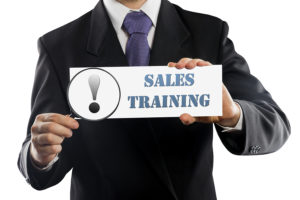As a business owner, you are all the parts of your business – bookkeeper, project manager, HR, and sales. Many entrepreneurs find sales to be the hardest part. It doesn’t need to be so daunting. There are a few points that are standard across the field of sales meetings, even client meetings of all kinds. These skills are often overlooked by small business owners as they are often learned by years of experience in the field of client meetings. Here’s a heads up on how to appear seasoned in your next sales meeting.
- Dress the part. Studies show that your appearance definitely matters when conducting business. Wear a wrinkle-free shirt with minimal jewelry. Try to stay away from jeans, unless you are in an industry that is construction or labor based; even then, make sure your jeans are free of dirt and dust.
- Confirm ahead of time. This is especially good to do if your meeting was scheduled 5+ days ahead of time. Send out an email the day before confirming the place and time of your meeting, with an expression of gratitude for thei
r time as a closing.
- Be punctual. This is often neglected by the busy business owner due to poor time management, or simply not putting enough priority to the punctuality of a business meeting. It reflects poorly on you and your business if you’re not on time to a meeting. People are late from time to time; things happen. If you are going to be late, call your client and let them know.
- Let them do the talking. Asking the right questions and being an excellent listener can make sales a lot easier. Many times, your client will tell you exactly what they want to know. Ask follow up questions to go further so that when it does come time to make recommendations or a proposal, you know you’re focusing on the factors that are going to impact their final decision.
- Follow up. 24 hours later, send an email thanking them for their time and stating what your next action will be. Also include a time frame for your next action, if applicable.
- Take notes, but maintain eye contact. A good meeting always results in information that is useful at a later date. Whether you write your notes on paper, a laptop, or a tablet, be thorough. It looks good to your client if you write things down. Be sure to use active listening skills as much as you can.
- Know your close ahead of time. What is your plan for the meeting? Will you be discussing sales figures? Have as much information as possible with you before the meeting. What is it with which you hope to come away from the meeting?
- Most importantly… Believe in yourself! This is the most important point of all. When you are confident in yourself and your product or service, it shows your client that you know what you are talking about and that you are a trustworthy and competent person.
These points will serve you well in any meeting, be it sales, administration, or staff. Representing your business is not the realm of only the suave and sophisticated. If you keep these points in mind, you are sure to impress every client you come across.


